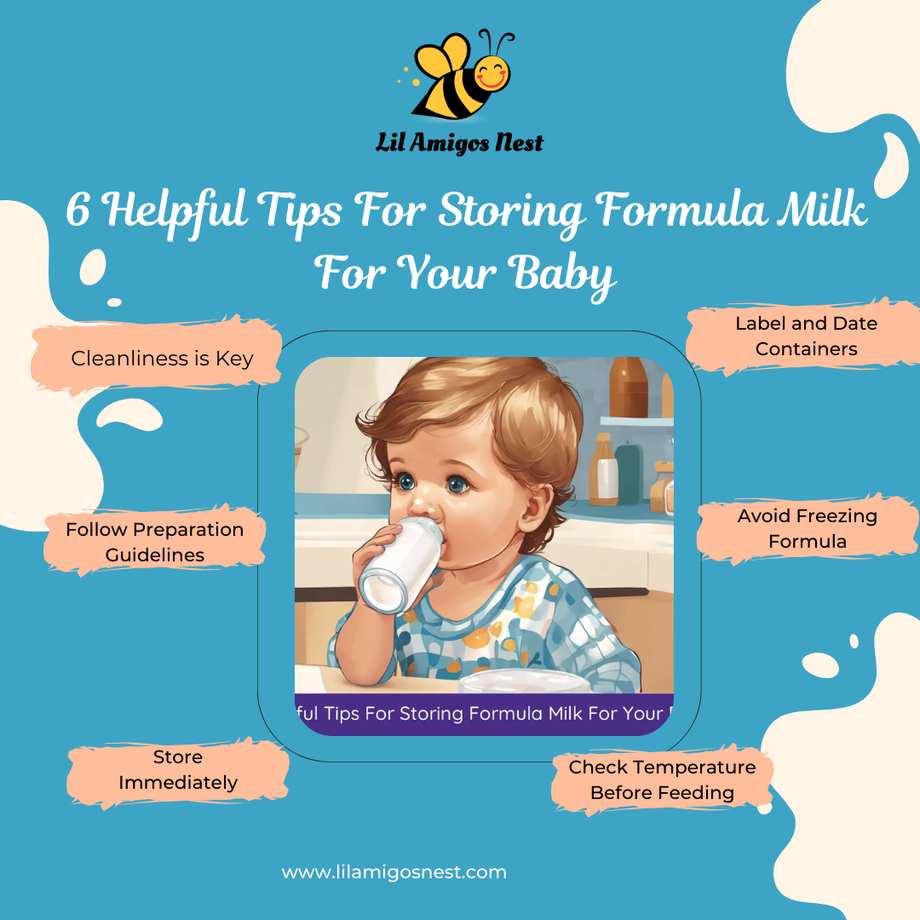Ensuring that your baby's formula milk is stored safely and correctly is essential for their health and well-being. Whether you're preparing formula in advance or storing leftovers, following proper guidelines can maintain its nutritional quality and prevent contamination. Here are six baby essential tips for storing formula milk effectively:
- Cleanliness is Key
Before handling formula milk, wash your hands thoroughly with soap and water. Ensure that all utensils, bottles, and nipples are clean and sterilized to prevent bacteria from contaminating the milk.
- Follow Preparation Guidelines
Prepare formula milk according to the manufacturer's instructions. Use the correct ratio of water to formula powder to ensure that your baby receives the appropriate nutrients. Always use clean, safe water, whether it's bottled water or tap water that has been boiled and cooled.
- Store Immediately
Once prepared, formula milk should be stored promptly in the refrigerator if you're not feeding it to your baby immediately. The World Health Organization (WHO) recommends using prepared formula within 24 hours if stored in the refrigerator to minimize bacterial growth.
- Label and Date Containers
To keep track of freshness, label bottles or containers with the date and time when the formula was prepared. This practice ensures that you use the oldest formula first, reducing waste and maintaining quality.
- Avoid Freezing Formula
Unlike breast milk, formula milk should not be frozen. Freezing can alter its consistency and nutritional content, affecting its suitability for your baby. Stick to refrigeration for safe storage.
- Check Temperature Before Feeding
Before feeding your baby, check the temperature of the formula milk. It should be lukewarm or at room temperature—around body temperature (about 98.6°F or 37°C). Test a few drops on the inside of your wrist to ensure it's not too hot for your baby.
Additional Tips:
- Discard Unused Formula: If your baby doesn't finish a bottle within two hours of feeding, discard the remaining milk. Bacteria from your baby's mouth can contaminate the milk, making it unsafe for later use.
- Transporting Formula: If you need to transport prepared formula, use insulated cooler bags with ice packs to keep it cold until it's ready to be used.
By following these tips, you can ensure that your baby's formula milk remains safe, nutritious, and enjoyable for every feeding. Proper storage practices not only protect your baby from potential health risks but also give you peace of mind knowing that you're providing the best care possible.
Always consult with your pediatrician or healthcare provider for personalized advice on feeding and caring for your baby. Each child's needs may vary, and professional guidance can help you navigate the journey of parenthood confidently.

